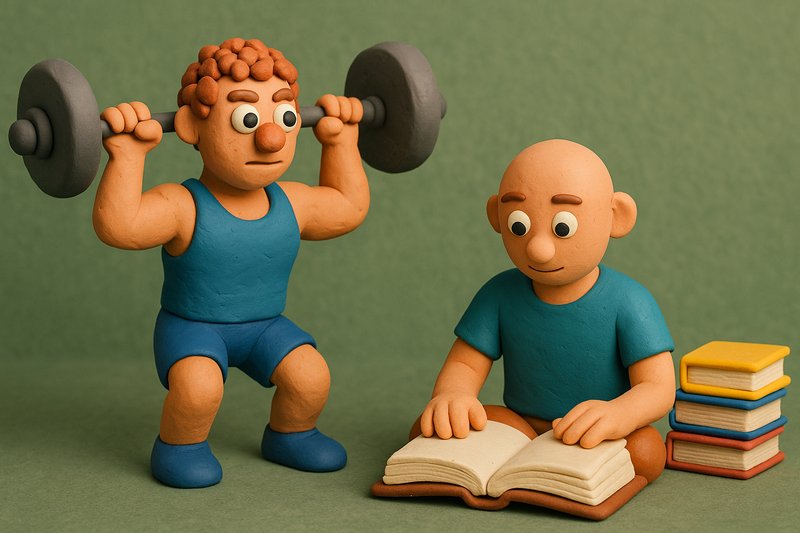The Surprising (Non-)Link Between Exercise and Learning New Skills

It turns out that pumping iron or flexing your brain might not be the secret keys to mastering new skills as we once thought. A recent study published this week dives into how physical and cognitive exercises influence our ability to learn motor skills, and the findings might surprise you.
What's the Big Idea?
Researchers from the Laboratoire Interuniversitaire de Biologie de la Motricité investigated whether quick bouts of physical exercise (like sprinting) or cognitive challenges (like memory tasks) before learning a new motor skill could improve performance. They meticulously scrutinised four different groups of participants—some did physical exercise, some engaged in cognitive exercises, some did both, and one group did no exercise at all.
After all the tests, the headline was clear: there was no significant difference in motor skill acquisition and consolidation between the groups. In other words, exercise type—be it brain or brawn—didn't notably boost performance when learning a sequential motor skill.
What Does This Mean for You?
While the outcomes may sound a bit disheartening for gym buffs and quiz lovers, here’s what you can take away from this research:
-
Keep Exercising: Even if it doesn’t lead to instant skill mastery, regular physical activity is still about a hundred different benefits—like improved mood and long-term brain health.
-
Focus on Skills: It might be more effective to simply practice the skill you wish to learn without overthinking your pre-exercise routine.
-
Understand Your Own Limits: Engage in exercises that feel beneficial to you personally. There may not be a universal approach that enhances motor skill learning for everyone.
Standing Out in the Crowd
What makes this study particularly intriguing is how it challenges some prior findings suggesting physical or cognitive exercises can enhance skill learning. Previous studies have pointed to benefits in different contexts, mostly when exercise was of longer duration or in a specific setting.
Here, the brevity of the exercise in question (just a couple of minutes of high-intensity intervals) might not have elevated the required physiology enough to trigger any improvement—reinforcing the idea that a little effort isn't always sufficient.
What’s Next?
While this exploratory research opens up a discussion, it leaves several questions unanswered. For instance, does the duration of exercise need to be longer? Or could certain individuals respond differently based on their fitness levels?
If you’re intrigued and want to dive deeper, check out the original research paper here.
In conclusion, while it seems pairing exercise with learning new skills isn’t the magic formula we were hoping for, using exercise as part of a broader routine could still be a smart move for many reasons!
Matt Collins